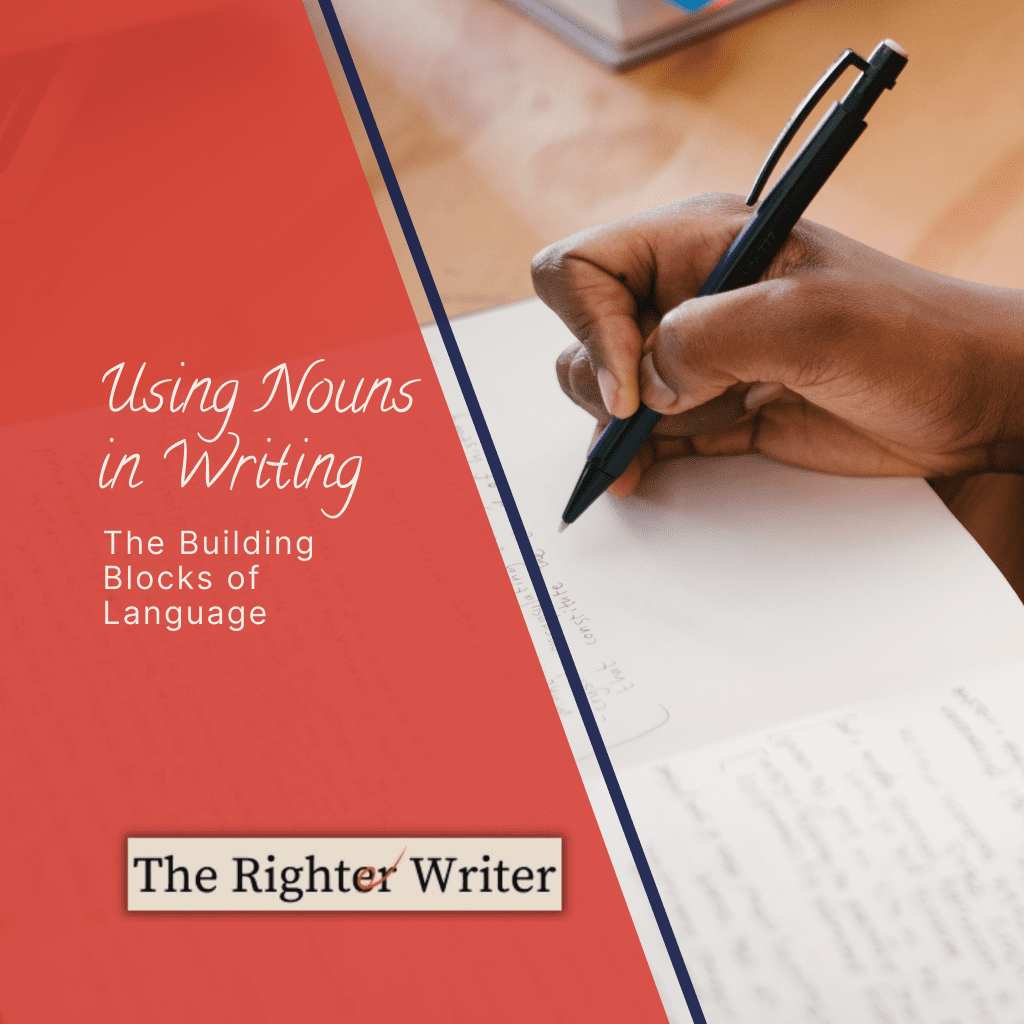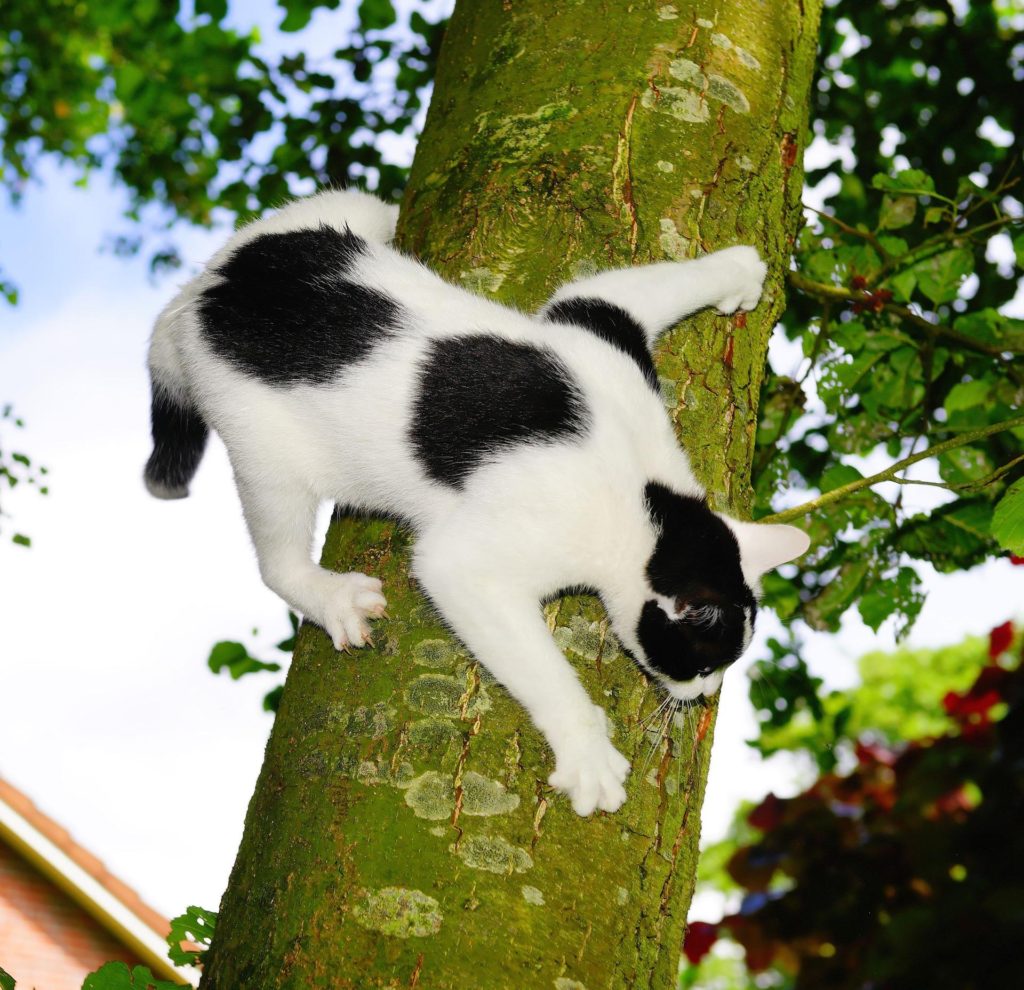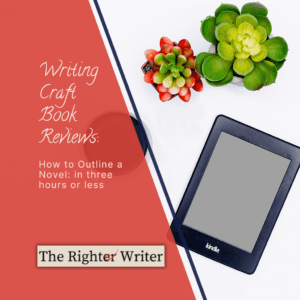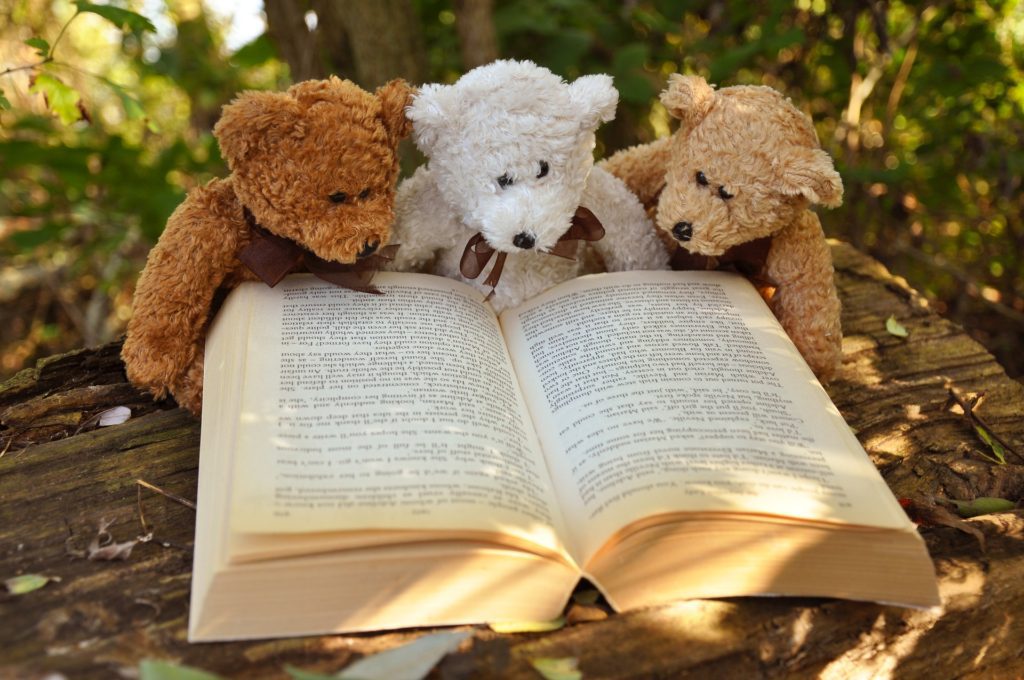
Writing Craft Book Reviews: A Book A Week
Fourth and last (for now!) in our series of book reviews featuring Kindle Unlimited books that explain ways to outline a novel. Let’s get ready for NaNoWriMo!
I'm an affiliate.
Some of the links on this page are affiliate links, but the opinions in my posts are my own, and I only mention products that I like and use myself. As an Amazon Associate, I earn from qualifying purchases. What that means is that if you click one of the links on my site and make a purchase, I might recieve compensation at no extra cost to you.

Nouns are the building blocks of language.
But what, exactly, is a noun? Maybe you learned in school that nouns are a “person, place, thing, or idea.” In a sentence, nouns answer the questions “Who?” or “What?”
And understanding them can help you use them effectively in your writing.
Let’s look at those different types of nouns, starting with the largest groups.
All nouns can be broken into two groups: proper nouns and common nouns.
Proper nouns are names of specific things, and you always capitalize them.
This isn’t a perfect way of remembering what they are, I’m sure, but I like to think of proper nouns as something that there is only one of.
For instance, there are lots of cats in the world, but there is only one Grumpy Cat, only one Kathmandu, and only one Catwoman. That’s why Grumpy Cat, Kathmandu, and Catwoman are all capitalized—because they are proper nouns that refer to names for things.
The word “cat,” on the other hand, refers to any cat, not a specific cat.
That’s why it’s a common noun, and it’s lowercase.
The category of common nouns gets broken down again into concrete nouns, abstract nouns, and collective nouns.

Concrete nouns are physical objects that can be experienced with the senses, like “city” or “tree.”
My cat got stuck in the tree.
Abstract nouns aren’t physical. They are concepts or ideas that cannot be experienced with the five senses, like “joy” or “democracy.”
I felt joy when my cat was rescued from the tree.
You use collective nouns for a group (or collection) of things.
I had a box of chocolates to celebrate, and my cat ate a whole school of fish.
A box of chocolates has a lot of chocolates in it, but it’s still treated as a single thing, so it takes a singular verb. The same goes for a school of fish, a murder of crows, or a library of books; collective nouns are a single group, so they take singular verbs.
A word is, well, what it is, right?
Actually, no.
The word you choose to use can change a sentence entirely, so we want to be sure that we are using the most specific, appropriate word that we can.
This is one of those things that is easier to understand if you see an example.
Maybe it’s a blog post, or a news article, or a gossipy email to your best friend. You might start with this sentence:
The people next door had a party.
That’s okay, but it’s not very specific.
Did they have a rave? A hoedown? A kegger? A ball? A housewarming? Was it just a get-together or was it a blow-out?


These are both parties; which would you rather have going on next door?
Look at each of those words and imagine what they look like, sound like, SMELL like!
What would you wear to each of those kinds of parties?
What would you do there?
Each of them conjures up very different images, right?
Let’s pick a specific word that names a precise type of party:
The people next door had a fete.
That changes the feel of the sentence, right?
When you are trying to communicate, you want to get across exactly what you mean to say, in exactly the way you mean to say it.
While it’s important to convey the feeling of your message, not just the facts, it’s sometimes hard to know if the reader is receiving the same information that you are writing. In some ways, word meanings are subjective.
First, what is the denotation of a word, versus the connotation?
Denotation is the strict, literal definition of a word, like what you would find in a dictionary.
Merriam-Webster defines the words house and home this way:
Definition of house
: a building that serves as living quarters for one or a few families :
invited them to her house for dinner
a two-family house
Definition of home
: one’s place of residence :
has been away from home for two weeks
a place to call home
The denotations are basically the same, right?
But they don’t mean the same thing if we think about the connotations of those two words.
Connotation is the emotional meaning or feeling a word carries.
How do you feel when you think of a house? It’s probably not especially positive or negative–more neutral.
A home, on the other hand, has a very positive connotation.
Have you ever heard the phrase, a house isn’t a home without love?
I really think that exemplifies the difference between connotation and denotation.
People today are grappling with the connotations of words that they have used unthinkingly for too long. Especially in the US, where I live, the words that we choose to use can be fraught with tension.
Here’s an example:
Each of those words has the same denotation: the person has a body with a low percentage of fat.
Each one has a different connotation, though–a different feeling.
When you are writing, take a second to think about the connotations of the words that you choose.
What emotions will they bring out in your reader?
Can you focus on feelings that will resonate with your message?
The nouns that you choose will affect how your message comes across to your audience.
Being concise is a big part of being a good writer.
A specific noun—one that conjures a particular image and feeling for the reader—creates a much clearer picture than a general, vague noun.
It also packs more information into fewer words and can build subtext into your writing.
The people next door had a fete.
Now let’s find a more specific noun than people. There are lots of different types of people, and that word doesn’t tell us anything about what kind of people they are.
Does that have a different feeling than just people?
Maybe you could call them by their jobs:
Or maybe the speaker lets slip how she feels about the neighbors by calling them jerks, or hotties, or clowns.

Let’s go with that one:
The clowns next door had a fete.
How is that different from the generic statement that the people next door had a party?
Normally, the word clowns doesn’t go with the word fete (a fancy, high-class party).
So by contrasting the two nouns with very different connotations, we get a sense of sarcasm.
You can hear the air quotes around the word “fete.”
Contrast that with “The hotties next door had a blow-out.”
Totally different, right?
Nouns are one of the most important building blocks of language, and understanding how to use them is essential for becoming a good writer.
After all, good writing is all about communication, and effective communication requires using the right words.
While verbs are important for describing actions, it’s nouns that really bring your writing to life by providing concrete images and ideas.
By learning how to use nouns effectively, you can add much-needed clarity and interest to your writing.
So if you’re looking to take your writing to the next level, there’s no better place to start than with some good old-fashioned nouns.
Over the next three weeks, I will be adding to this series with articles on:
Sign up for my weekly newsletter so you get notice of each new blog post as well as tips for proofreading and editing your own writing.

I help authors, researchers, business people, students, and web marketers to polish their writing before they send it out into the world.

Fourth and last (for now!) in our series of book reviews featuring Kindle Unlimited books that explain ways to outline a novel. Let’s get ready for NaNoWriMo!

Third in our series of book reviews featuring Kindle Unlimited books that explain ways to outline a novel. Let’s get ready for NaNoWriMo!

Second in our series of book reviews featuring Kindle Unlimited books that explain ways to outline a novel. Let’s get ready for NaNoWriMo!

2 Responses
Loved this! The importance of the right noun can’t be overlooked!
I’m glad it was useful!